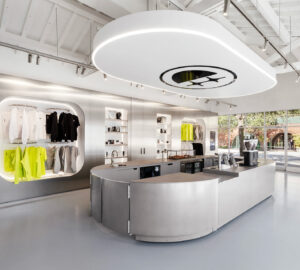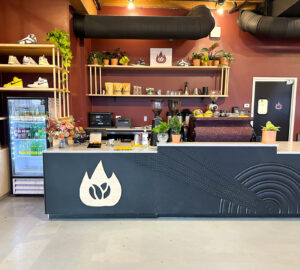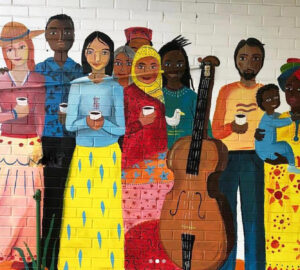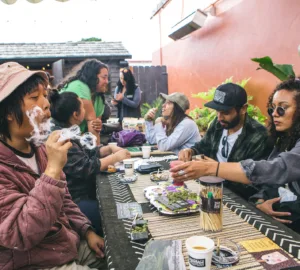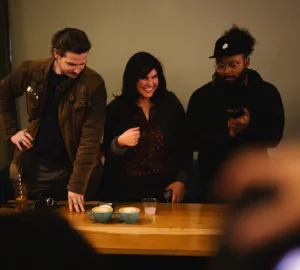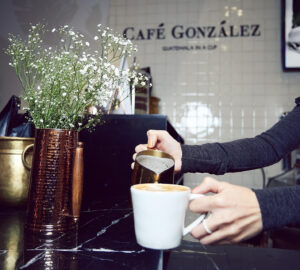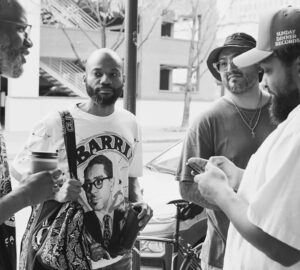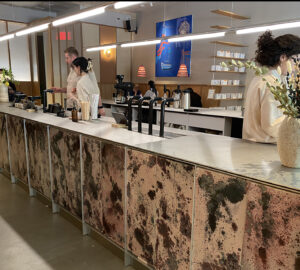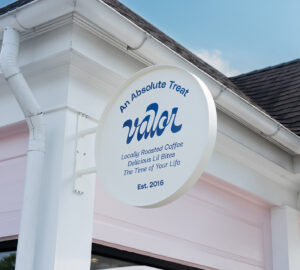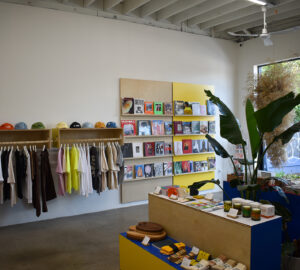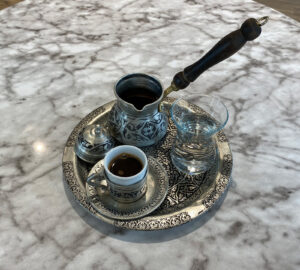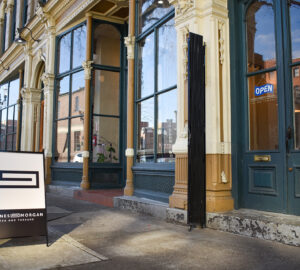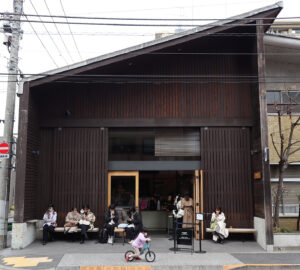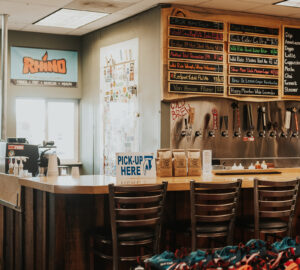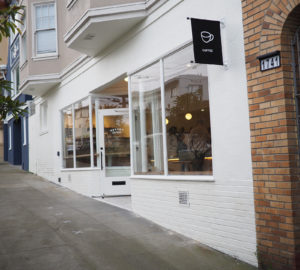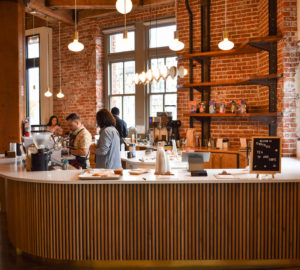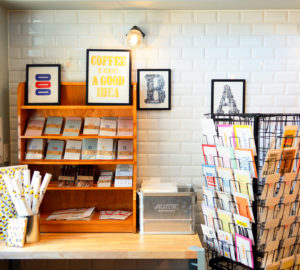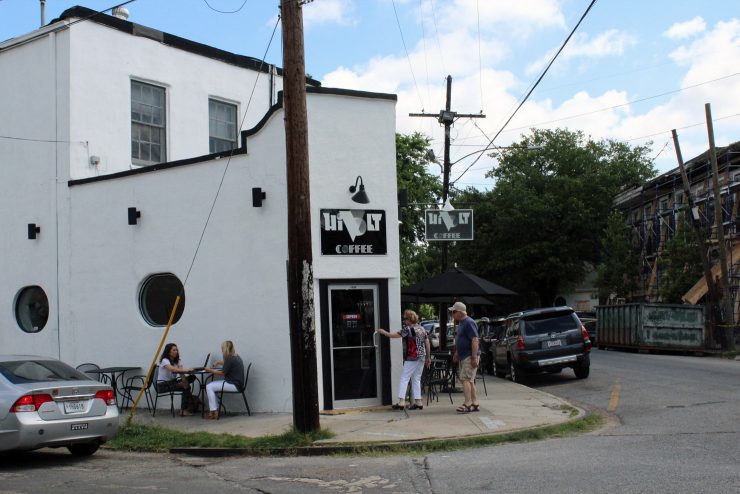
When Alaska native Benji Lee was looking at music colleges in 1996, he went to the source: Tulane University in New Orleans, one of the greatest destinations for live music in the world. Like many a visitor to ‘Nawlins, Lee became fell in love with his new home and never really left. It helped that he had family in town, including a brother who owned a bar. Lee worked there first as a doorman, then bartender, and eventually manager. He bought that bar, The Saint, from the person his brother sold it to in 2011.
While Lee was submerged in the bar world, coffee was a presence in his life as well—but it never seemed to be around when he needed it most.
“There was no good coffee in town,” he says. “Maybe one or two shops, but they’d close at like 2 [p.m.]. That’s right when I need a second cup of coffee. So this was kind of born out of a nerdy obsession with my own selfish needs for coffee.”
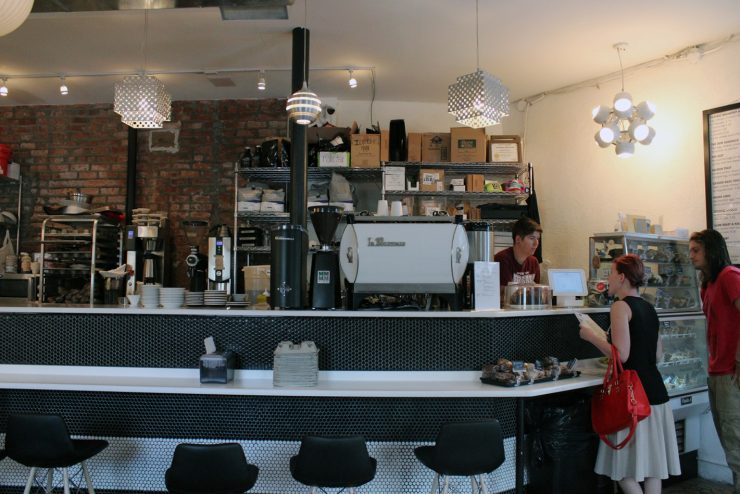
Lee, a self-described businessman with an eye for opportunities, saw one for his obsession sitting in the Lower Garden District, two blocks away from the bar. The neighborhood is centrally located and has catered to those working in the service industry, with lots of restaurants and, until recently, relatively inexpensive rents. New to the neighborhood as well is Second Line Stages, an LEED-certified production campus that’s hosted films such as “Django Unchained” and “21 Jump Street” as well as the locally set TV shows “Treme” (now concluded) and “American Horror Story.”
As they say on TV, the building Lee found has curb appeal: it stands out among the 19th-century architecture of the city with some Art Deco design, round windows, and midcentury modern furnishings. The space had been abandoned for over 20 years, with a hollow outer shell and a gutted interior. Once everything fell into place, design work took nine months and construction began in May 2013. All-new everything was installed, from the plumbing to electrical and beyond, and HiVolt opened for business in September 2013, as featured in our Build-Out of Summer series.
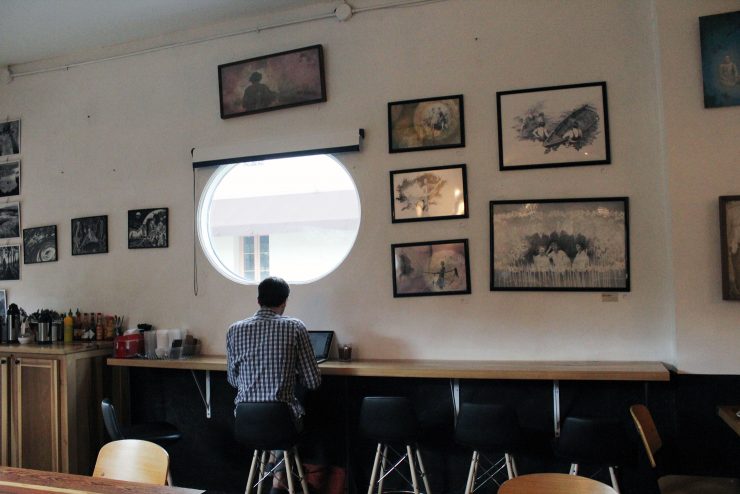
Supporting HiVolt’s coffee program is Counter Culture Coffee of North Carolina. Espresso drinks are made on a white La Marzocco GB5 with one Mazzer and one Nuova Simonelli Mythos One Clima-Pro handling grinding duties. Both FETCO and Bonmac hand brews are available for filter coffee, with a Mahlkönig EK 43 in support for grinding. Lee says his interactions with Counter Culture were positive from the beginning, and that the company’s support when he was opening, as well as the coffee-education services it provides, have been crucial.
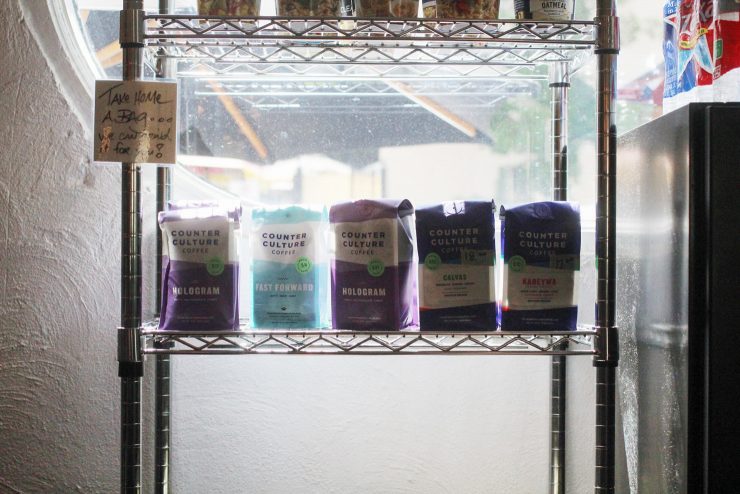
“It gave me the confidence to go forward because I knew I could hire people that maybe didn’t know too much about coffee,” Lee says. “Getting them all trained by Counter Culture, I feel like we had a leg up because there wasn’t a lot of background [experience] where people were set in their ways. Also, I didn’t have to worry about [Counter Culture] coming in and opening a shop right behind me. Nobody wants to be the guinea pig [like that], that’s not a good business plan.”
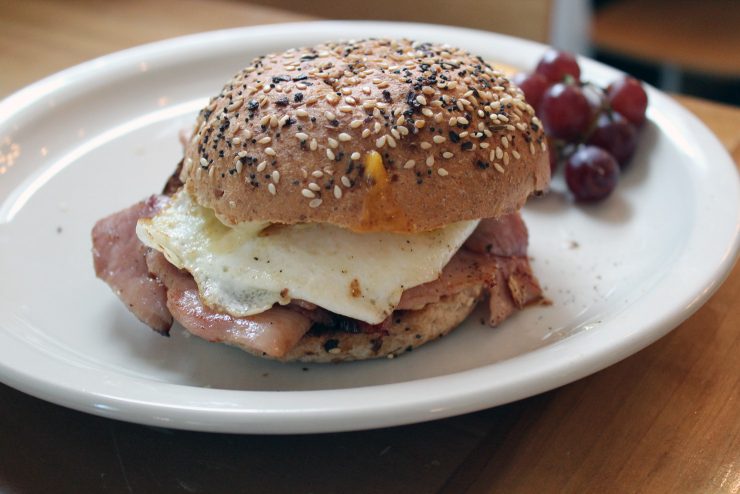
Having good food to accompany the coffee is a good business plan though. Luckily, Lee’s wife, Laura, is a 25-year New Orleans restaurant veteran. She wanted to do baked goods at HiVolt, as well as some healthier options in a town infamous for being a gourmand’s haven. Popular items at the cafe are the breakfast sandwiches, including the Classic (egg, American cheese, tomato, kefir herb dressing, and avocado) and the Dom (fried egg, ham, cheddar, and dijonnaise).
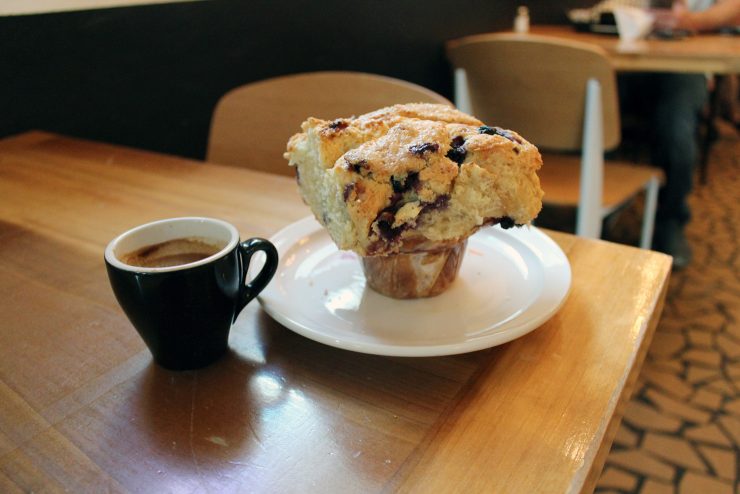
Things have gone well enough that earlier this year, Lee unveiled HiVolt Bakery, in the city’s Uptown neighborhood. The shop keeps shorter hours than the flagship cafe, from 6 a.m. until 1 p.m., with bakers arriving at 4 a.m. to start churning out fresh goods to accompany their coffee program (Lee recommends the croissant). Beyond this new addition, though, Lee doesn’t have a gigantic empire in his plans. He wants to maintain a high level of quality, and owning three businesses keeps him plenty busy. And now, he can finally get that 2 p.m. coffee in New Orleans.
“It’s a port city so there’s always been coffee,” Lee says. “It’s been a big part of the culture down here, especially with the way New Orleans people are. They’re very ritualistic, really set in their ways, and they don’t like change. So this new way to look at coffee was a long time coming.”
A long time coming indeed, now delightfully at home in a city like no other.
Evan C. Jones is a Sprudge.com contributor based in St. Louis. Read more Evan C. Jones on Sprudge.
















